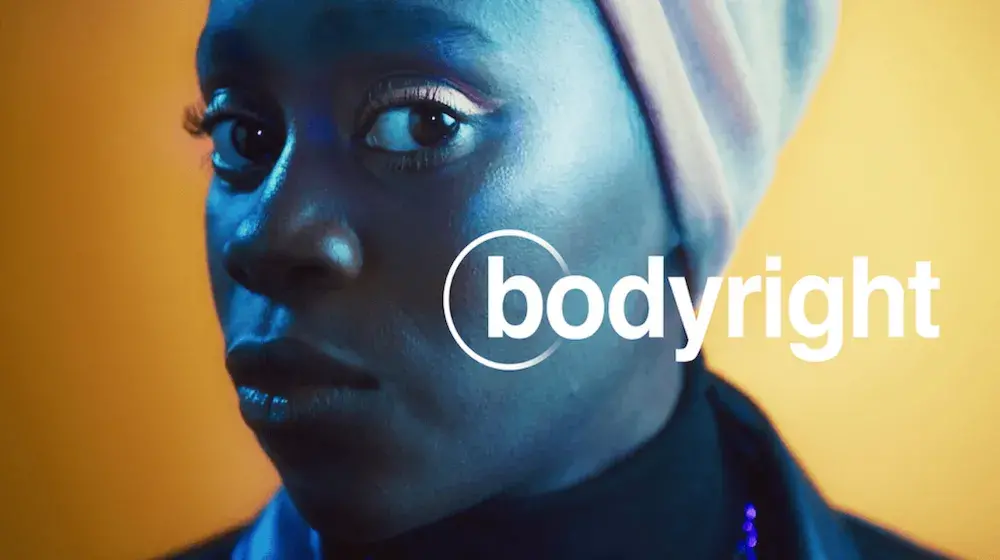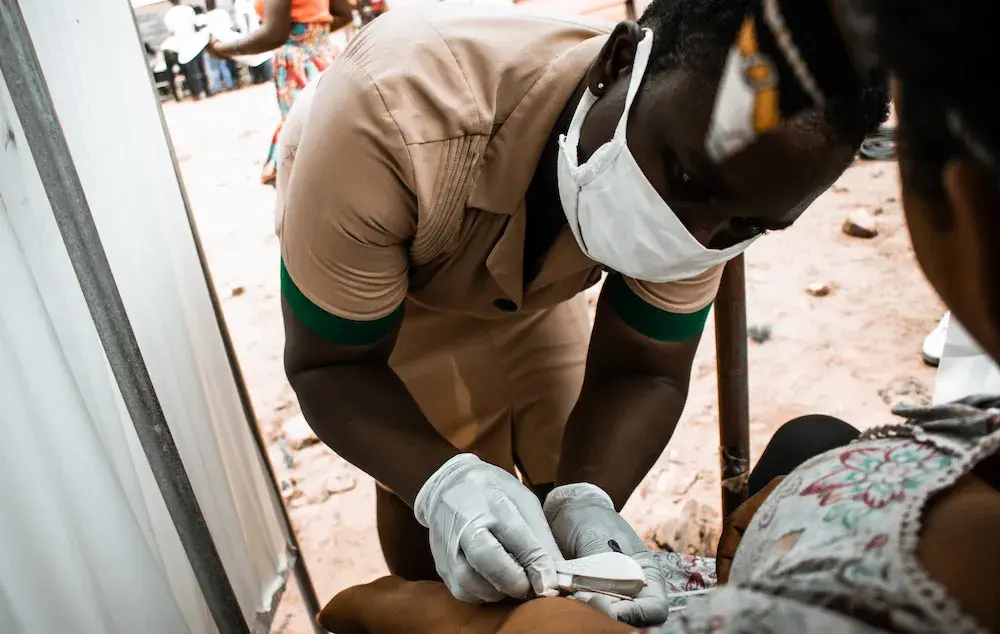This speech was delivered by Mr. Anders Pedersen, UN in Botswana Resident Coordinator, on behalf of the UN Women Executive Director, Phumzile Mlambo-Ngcuka at the GenderLinks SADC Gender Protocol@Work Summit.
Ministers,
Government Officials,
Members of the SADC Gender
Members of the Southern Africa Development Community,
Ladies and Gentlemen,
It is my great pleasure to be here with you today at this Fourth SADC Gender Protocol@Work summit.
Your theme, "2015 - Action and Results" is indeed timely, both globally and here at the sub-regional level.
The year 2015 is the 20th anniversary of the implementation of the Beijing Declaration and Platform for Action, a landmark blueprint for gender equality.
This year also marks the endorsement of the Financing for Development agenda, which was concluded just last month in Addis Ababa.
Earlier this month, Member States of the United Nations officially adopted 17 new Sustainable Development Goals, including a stand-alone goal on gender equality and gender equality targets incorporated throughout other goals. And in a few months, an international climate change agreement will be in place.
For those of us in this room, 2015 has very specific significance because the SADC Gender Protocol Barometer, which was aligned to the MDGs, has reached the end of its countdown of progress on gender equality. I take this moment to congratulate the Heads of State of the Southern African Development Community (SADC) for having the foresight in 2008 to adopt a Protocol on Gender and Development. SADC is one of the few, if not only sub-regions that has taken all the global and continental commitments to gender equality and wrapped them into one instrument with ambitious, time-bound targets.
I further congratulate the Southern African Gender Protocol Alliance, for producing the annual Barometer to track progress. I am a firm believer in the dictum that what is not counted does not count. And the SADC region has set itself ahead of the pack with this protocol and its Barometer.
Ladies and Gentlemen
We are indeed on the cusp of a new era at all levels. In our region, since 2009, the Barometer has assessed progress towards achieving the 28 targets of the Gender Protocol, counting down towards 2015. Well, here we are now. It is2015. How have we done?
We can celebrate a number of major achievements of the region, which the Gender Barometer allowed us to track:
· Since the first 2009 Barometer, eleven countries have undertaken constitutional reviews of some kind that have a bearing on gender equality. Twelve countries (up from four in 2009) address the contradictions between the Constitution, laws and practices.
· Fifteen countries provide for non-discrimination on the basis of sex.
· The campaign against child marriages has gained momentum with Malawi raising the age of marriage to 18.
· As a region SADC is five percentage points ahead of the global average of women in parliament of 22 percent.
· There has been an unprecedented flurry of women in high office in SADC over the period. Twelve women in eight SADC countries have held high positions: two Presidents, six deputy presidents, two prime ministers and two deputy prime ministers
· 11 now countries have laws on domestic violence; 13 on sexual harassment and 11 on human trafficking.
· HIV and AIDS incidence has decreased consistently over the past decade as fewer people are becoming infected.
· SADC has reached the targets of the Protocol, the MDGs and the Education For All Dakar Framework (EFA).
These and quite a number of others show that we have not been stagnant and that watchfulness, activism and positive collaboration between of civil society and governments have led to towards progress on gender equality.
On the other hand, very sobering challenges remain. Across Southern Africa, the Barometer tells us that there are still big roadblocks to achieving gender equality:
1. Backward movement in elections: With few exceptions, the last set of elections have been disappointing: No country has reached the 50% target of women's representation in parliament, cabinet or local government. Over the past six years, women's overall representation in parliament has gone up by only two percentage points from 25% in 2009 to 27% in 2015.
More women in Parliament will increase the possibility to pass laws that would end the many harmful cultural practices that are still entrenched in our societies.
2. Patriarchal attitudes still abound, reflected in gender stereotypes in schools; the work place and the media; as well as predominantly male decision-making structures in all areas. Customary law contracts constitutional provisions with few ramifications in many countries.
In fact, many countries around the world had enacted more and better laws promising gender equality. But laws can only go so far when attitudes, customary practices and discriminatory social norms remain unchanged.
It is time for us to stop hiding behind the excuse of “culture” to deprive women of their inheritance rights, and their property and land rights and to deny them access to productive resources.
In this, we can learn from the inspiring example of Malawi’s Chief Kachindamoto, who recently annulled 330 teenage marriages in that country.
Please take note: Chief Kachindamoto is a woman – and she has led the way with the kind of concerted leadership and commitment that is needed for transformative change. There is a unique opportunity for us in Southern Africa to agree on time frames within which to completely eliminate the practice of forced and early marriages.
We need to be bold if we are to limit the impact of negative customary law as Chief Kachindamoto has shown us.
3. The economy is still male territory: Women still lack access to economic decision-making, land, credit and other means of production. They constitute the majority of the poor; the unemployed; the dispossessed and those who work in the informal sector.
Women also shoulder the burden of unpaid care work which comes with a care penalty. This is a care penalty that unfairly punishes women and girls for stepping in to provide missing public services, like safe water sources, enough health care workers, care facilities for both young children and elderly parents.
In UN Women’s flagship report, Progress of the World’s Women 2015-2016: Transforming Economies, Realizing Rights, we emphasize a rights based approach that is important to economic development. For example SADC has the opportunity to lead the World in achieving equal pay for equal value of work between women and men.
4. global scourge of violence against women.
Gender Links is among the many NGOs globally that are testing and proving the strong hypothesis that economic empowerment will increase women's agency and self-realisation, and thereby increase their ability to negotiate safe relationships or to leave abusive relationships and make positive choices about relationships.
In the SADC region, like the rest of the world, Gender violence remains the most telling indicator of women's lack of rights and agency.
5. There is, as we know, a strong link between violence against women and HIV and AIDS, which continues to threaten the fragile gains that have been made.
There is a shadow over the consistent decrease of HIV and AIDS incidence over the past decade, because young women remain the majority of those newly infected by HIV and AIDS as well as those who bear the burden of caring for People Living with HIV. We need to take concrete action to address the sharp increase of high infections in our region among the girls of 14 to 20. This is clearly a critical responsibility that only us in SADC can lead on and failure is not an option.
Ladies and Gentlemen,
I have only touched on some of the areas covered by the Barometer, yet those are enough to show that the advent of 2015 and the new development agenda is not a moment too soon. Each challenge I mentioned is integrally bound to all the others and deeply rooted in underlying, structural drivers. The new development agenda, now referred to as The 2030 Agenda for Sustainable Development, gives us a space to create the transformative change needed to meet this ambitious agenda.
To do this, we can learn from the example set here in the region. One of the most positive features of the Protocol is the extent that civil society and governments have worked together in partnership to achieve its goals.
The SADC Gender Protocol Alliance has succeeded in setting up affiliate networks in all 15 SADC countries, as well as across ten themes and cross cutting interest groups.
In great part due to these efforts and relationships driven by the Alliance, in May, SADC Gender Ministers resolved to review the Protocol and align it to the SDGs, the Beijing Plus Twenty Review, and Africa's Agenda 2063. Additional cause for celebration is that the ministers declared that they want the updated Protocol to be accompanied by a Monitoring, Evaluation and Results Framework.
The Post 2015 Agenda
With the adoption of the Sustainable Development Goals it is going to be important that SADC leads the way again by establishing a barometer to track the implementation of the SDGs. The SDGs are even more complex agenda with more indicators to monitor, thankfully with gender mainstreamed in all the 17 Goals and a more extensive gender goal which is Goal no 5 that is more extensive than the gender goal in the MDGs. Goal 5 of SDGs includes
· Women’s Economic Empowerment,
· ending violence against women,
· reproductive rights and reproductive health and unfortunately less robust on sexual rights,
· It includes addressing unpaid care work,
· leadership of women and representation,
· ending all forms of discrimination which in SADC we must aim to do within a specific time frame.
· It also includes ending all harmful cultural practices which means we in SADC can end forced and early and child marriage.
All of these can be achieved only if we address the deep seated stereotypes and prejudices against women and girls that are prevalent in all our communities and also address the disconnect between some of the traditional laws and the progressive laws that we have passed.
Ladies and gentlemen,
If we are to truly transform attitudes and social norms, we must also reach out to new and diverse constituencies.
Our traditional allies have gotten us to where we are today, but we do not want only to be preaching to the choir.
In that vein, I commend the Alliance members for emphasizing the importance of grassroots mobilization in advancing gender equality, as well as the vital role that youth, men's groups and faith-based organizations.
Achieving gender equality is above all a transformative enterprise.
It is about breaking social norms and harmful stereotypes that limit opportunities for women and girls and restrict men and boys to certain roles.
UN Women is mobilizing men and boys through our HeforSheinitiative.
It calls for men and boys to take responsibility for gender equality and to work in solidarity with women to redefine masculinity.
We will know we have succeeded when
· all women enjoy equal rights, live their lives free from violence and can freely make decisions about their bodies, health and sexuality;
· when women and girls can access quality education at all levels, are paid equally and have equal opportunities in the workplace, and are no longer constrained by a disproportionate share of unpaid care work;
· when women are no longer confined by gender stereotypes and enjoy equal voice, participation and leadership in decision-making at all levels.
The work that the Alliance does locally, regionally, and around the continent can have a global impact that will help us to reach these ambitious goals.
We value the collaborative relationship that has been established between UN Women and the Alliance and look forward to continuing this momentum even further - together.
Thank you.




